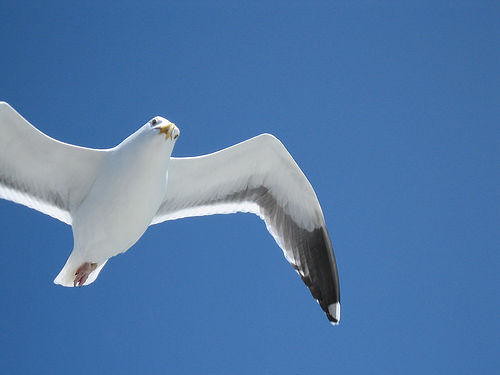The Lobster attends a "Council of All Beings"
Today was the last gathering of my Senior College Exploring Nature class. Our teacher had assigned us each to choose to "speak for" one animal or plant in a "council of all beings". Which we spent the last half hour or so doing.
Using the voice of a deer and a clam, she'd written short presentations to be read by herself and for one who'd missed the last few classes. Another student told about snakes, another spoke for the Pink Lady's Slipper (wearing pink slippers which cracked us all up), while another spoke in the voice of the wild turkey.
Then it was my turn. I had chosen to "speak for" the lobster. Thanks to B's suggestion, I had printed off a photo of a happy lobster in the wild. I'd typed up an outline of the results of my research but presented it in the "voice" of the lobster. The other students (and the teacher!), came away quite affected by what they heard...questioning if they'd ever again be able to cook a lobster.
Here is my outline--read it as if the creature itself were talking to you:
Lobsters are Sentient Beings who feel Pain
Lobsters have an exquisite tactile sense and very sensitive pain receptors.
-“Smell” chemicals in the water with antennae
-“Taste” with sensory hairs along legs
Respond behaviorally as if they are in pain
-struggle, thrash and try to climb out of boiling pot
-response to electric shocks as adverse stimuli is used by researchers
-response to pain is similar to mammals’ response
Have biological structures for mediating pain
-Nervous systems produce opioids which mediate pain (as do mammals)
-Crabs’ defensive reaction to shocks is reduced by morphine (as do mammals)
-Unlike mammals, no autonomic nervous system so can’t go into shock if harmed
Demonstrate mental cognitive processes
Learning and Association
-high degree of associative learning
-can make distinctions about environment
-can learn to associate certain chemical signals
with punishment and chemical signals with rewards
Memory
-explore new environments but not familiar ones
-form stable social hierarchies
-can remember and recognize fighting opponents
Generalization
-can associate an individual odor with a mixture that contains it
(i.e. can discern that a combination is not the same as the sum of its parts)
“After all the abstract intellection, there remain the facts of the frantically clanking lid, the pathetic clinging to the edge of the pot. Standing at the stove, it is hard to deny in any meaningful way that this is a living creature experiencing pain and wishing to avoid/escape the painful experience.” David Foster Wallace
“Consider the Lobster” Gourmet August 2004


1 Comments:
You know, I've never been able to enjoy lobster like others I know. I've tried it a bunch of times in different places to be sure I didn't like it, and I can say that for certain.
I like taking photos of them, though!
Post a Comment
<< Home